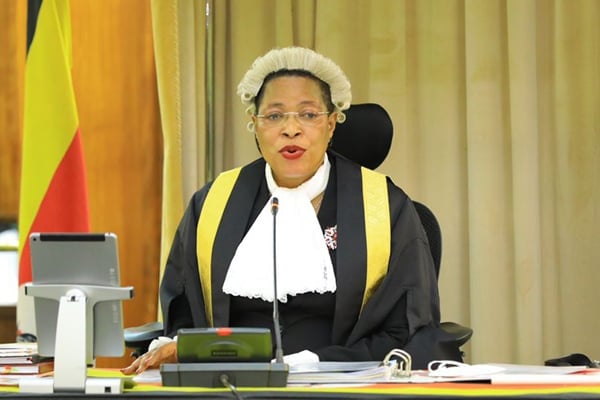
Author: Musaazi Namiti. PHOTO/COURTESY
Since the United Kingdom announced on April 30 that it had imposed sanctions on Speaker Anita Among and two former Cabinet ministers for taking iron sheets belonging to the people of Karamoja, some prominent Ugandans have said that the British did overstep the mark.
They say that Uganda is a sovereign nation and that issues to do with corruption, to which the UK has linked Ms Among and Mary Gorreti Kitutu and Agnes Nandutu, the two former Cabinet ministers, should be left to the government to deal with.
They have also said that while the two former ministers appeared in court for taking the iron sheets, Ms Among has not been arraigned anywhere and that the Director of Public Prosecutions (DPP), Jane Frances Abodo, did close her case file for lack of evidence.
Ms Among insists the sanctions have everything to do with her role in enacting the Anti-Homosexuality Act – but Ugandans know perfectly well that the architect of this law is the Bugiri Municipality MP Asuman Basalirwa, who introduced the Bill in Parliament. (The British have not put him on the sanctions list, but he would never get a UK visa if wanted one.)
The UK has linked Ms Among to corruption without presenting a watertight case. President Museveni has since said (in a letter to Foreign Affairs minister Jeje Odongo) that he had met with the UK High Commissioner to Uganda, Kate Airey, ahead of the sanctions announcement and that the diplomat told him the Speaker “has got a house or houses in the UK and a bank account from which she pays school fees for her children who are studying there”.
Mr Museveni says that was in answer to his question as to why the Speaker had been sanctioned. It is hard to see how this translates into incontrovertible evidence of corruption. Journalists who have tried to contact the High Commission in Kampala inquiring about corruption allegations against Ms Among have only drawn a blank.
Nonetheless, if the UK has strong evidence of corruption against Ms Among, it should not only sanction her but it should also tighten the sanctions. This should teach other people a lesson that when you take a bite out of corruption, the consequences will be dire.
The Global Anti-Corruption Sanctions Regulations 2021, under which Ms Among was sanctioned, are meant to “prevent and combat serious corruption” anywhere. There is nothing in the sanctions regime to suggest that a sovereign country’s nationals accused of misappropriating public funds should be excluded.
In many places, ordinary people have borne the brunt of corruption, and Uganda is no exception, of course. While politicians can afford quality medical treatment – locally and overseas and always at the expense of the taxpayer – ordinary people sometimes cannot even afford over-the-counter prescription drugs.
In Uganda, people often flee ‘violent’ poverty and seek menial jobs in places such as the UK. The country they call home is not really home. But it is home for politicians, for the most part, because they get to decide how they should be remunerated.
If a well-paid politician misappropriates public funds that should help poor people, that should fix problems in their country, they should not have the luxury of enjoying that money by piling shopping carts with luxury goods in London’s famous stores or by sleeping in the city’s ritzy hotels. It is unacceptable.
If Ms Among is corrupt and the British have strong evidence, they are doing the moral/right thing by sanctioning her. Let them tighten the sanctions.
Mr Musaazi Namiti is a journalist and former
Al Jazeera digital editor in charge of the Africa desk
[email protected] @kazbuk

